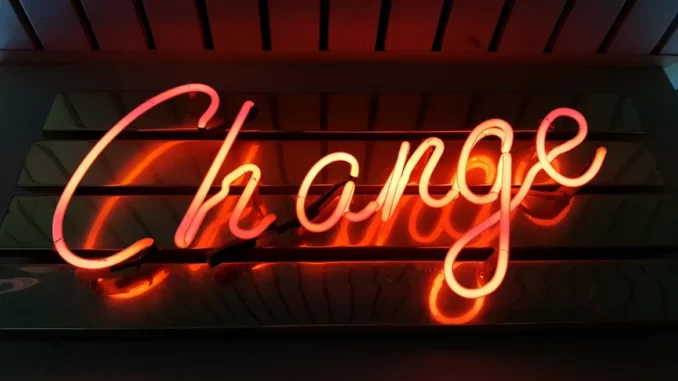
The UK’s construction industry stands as a vital pillar of the nation’s economic landscape, continually shaping its infrastructure and housing. Yet, this foundational sector faces daunting hurdles, including a critical shortage of skilled labour, concerns over modern slavery, and a pressing need for more inclusive hiring practices. To combat these challenges, the Better Hiring Institute (BHI) has unveiled the Better Hiring Toolkit, a strategic guide designed to revolutionise recruitment within the sector, fostering an environment of integrity, inclusivity, and efficiency.
Focus360 Energy: property compliance services – pre-planning to post-construction. Learn more.
The construction industry is currently under immense pressure to fulfil the ambitious targets set by the Labour government, notably the construction of 1.5 million new homes. However, the sector’s ability to meet these demands is severely hampered by an acute shortage of skilled workers, a challenge exacerbated by outdated recruitment strategies and insufficient inclusivity. The Better Hiring Toolkit seeks to address these issues directly, offering practical, streamlined guidance rooted in UK best practices. By modernising recruitment processes, the toolkit aims to create a more resilient and adaptable workforce capable of rising to contemporary challenges.
Developed through an impressive collaborative effort, the toolkit’s creation involved key industry players such as the Chartered Institute of Building (CIOB), the Disclosure & Barring Service (DBS), Reed Screening, and the Gangmasters & Labour Abuse Authority (GLAA). This coalition underscores the industry’s collective commitment to enhancing hiring practices and ensuring equitable treatment for all workers. Such collaboration not only highlights the pressing need for reform but also demonstrates the power of collective action in driving meaningful change.
Among the toolkit’s primary aims is the eradication of modern slavery, a persistent and troubling issue within the construction realm. The toolkit provides employers with essential insights for recognising indicators of modern slavery and ensuring compliance with legal standards. By addressing this critical issue, the toolkit not only safeguards workers’ rights but also promotes ethical hiring practices that uphold the integrity of the construction industry. This focus on ethical recruitment is crucial in building trust and safety within the sector, ensuring that all workers are treated with dignity and respect.
In addition to tackling modern slavery, the toolkit places significant emphasis on broadening the recruitment pool by encouraging the inclusion of ex-offenders. A recent CIOB report shed light on the barriers faced by individuals with criminal records, particularly those leaving prison, when attempting to enter the construction workforce. By addressing these barriers, the toolkit aims to foster a more inclusive workforce, thereby helping to alleviate the skills shortage. Encouraging the recruitment of ex-offenders not only diversifies the workforce but also offers a pathway to rehabilitation and reintegration, benefiting both individuals and the industry as a whole.
Effective vetting and verification of potential recruits form another cornerstone of the Better Hiring Toolkit. It provides comprehensive guidance on verifying qualifications and validating CSCS cards, ensuring that employers hire competent and qualified individuals. This rigorous approach to recruitment not only enhances safety and efficiency on construction sites but also strengthens the sector’s reputation. By ensuring that all hires meet high standards of competence, the toolkit helps to maintain the quality and reliability of the industry’s output.
The introduction of the Better Hiring Toolkit has been met with enthusiastic support from industry leaders. Caroline Gumble, CEO at CIOB, expressed optimism that the toolkit would encourage recruitment from a broader range of communities, ultimately improving the retention of skilled workers. Helen Chandler from the Disclosure and Barring Service highlighted the toolkit’s role in facilitating safer recruitment decisions, ensuring that the construction industry can uphold best practices. These endorsements reflect the widespread recognition of the toolkit’s potential to drive positive change across the sector.
The Better Hiring Institute is actively encouraging construction employers to download, implement, and disseminate the toolkit within their organisations. By adopting these best practices, employers can position themselves as leaders in ethical hiring and contribute to a more sustainable and equitable construction sector. Keith Rosser, chair of the Better Hiring Institute, emphasised the toolkit’s role in supporting economic growth and creating better opportunities for all stakeholders within the industry.
The Better Hiring Toolkit emerges as a crucial instrument in addressing the recruitment challenges faced by the construction sector. By promoting fairer and safer hiring practices, it tackles modern slavery and encourages the inclusion of underrepresented communities, such as ex-offenders. As the construction industry continues to evolve, the adoption of innovative solutions like the Better Hiring Toolkit is essential in building a more resilient and sustainable future, ensuring that the sector can meet the demands of tomorrow with integrity and inclusivity.


Be the first to comment